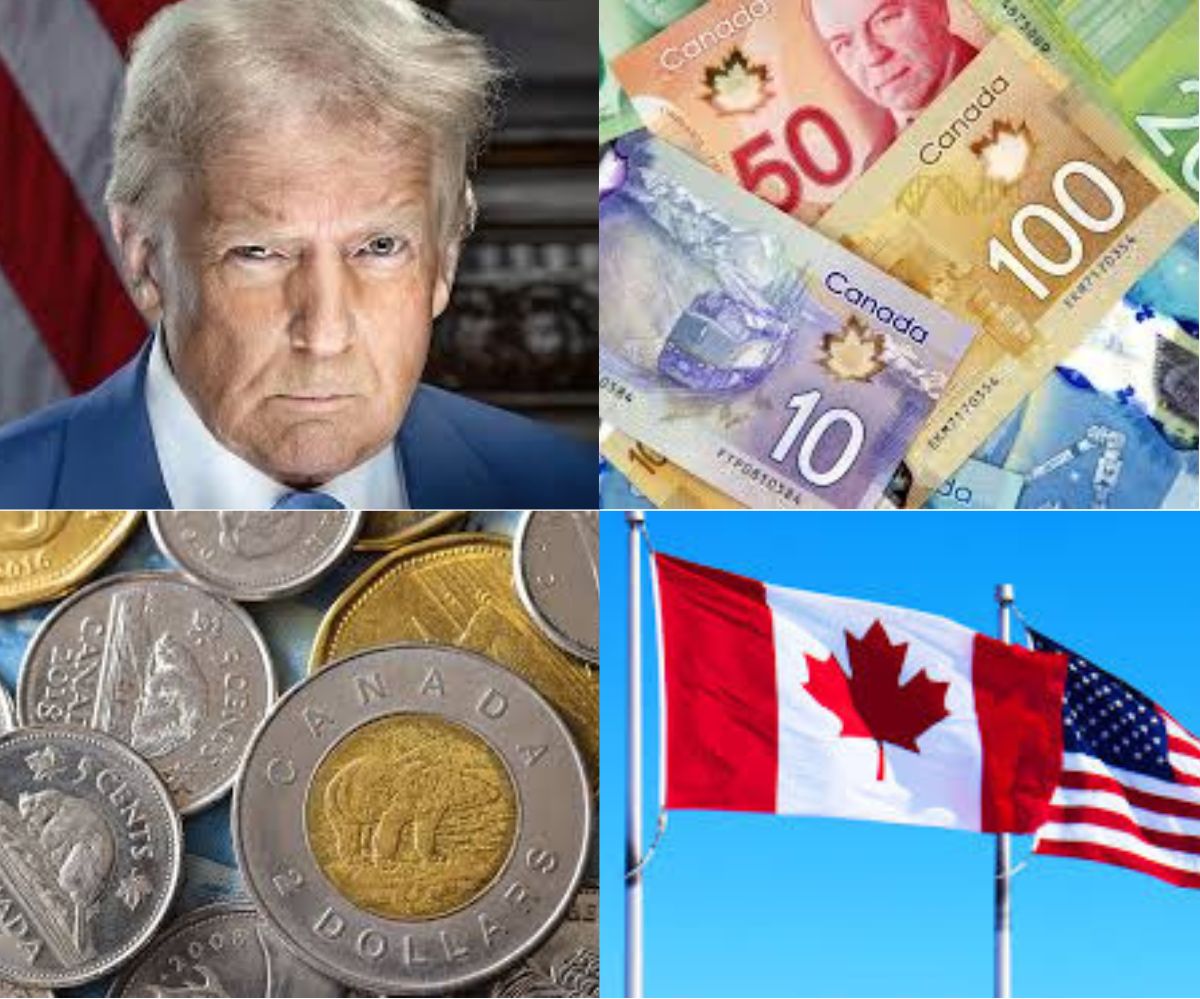Despite the temporary reprieve, U.S. President Trump still insists he will put 25 per cent tariffs increase on Canadian and Mexican goods, and 10 per cent tariffs on Chinese imports.
On Feb. 10, Trump also signed orders imposing 25 per cent tariffs on all steel and aluminum imports, including Canada.
At the beginning of Donald Trump’s presidency, he said he’d impose tariffs on Canada, Mexico and China. On Feb. 3, the day before President Trump said he would impose 25 per cent additional tariffs on Canadian products, he put a one month pause on the promise, leaving room for negotiations.
A tariff is a tax that is imposed by the government of a country on imports and/or exports of products or goods. In this case, Trump is looking at imposing 25 per cent tariffs on Canadian imports, meaning that for Americans, products coming from Canada are going to be more expensive. Donald Trump has repeatedly falsely claimed that the tariffs will not be a cost to Americans, but to “another country.” Vice President J.D. Vance also insists that prices will go down for American citizens as a result of these tariffs.
Import tariffs, apart from being a source of revenue for the government, are usually used as a form of regulation of foreign trade to encourage domestic consumption. A tariff is a tax that is paid by U.S. businesses — not other countries — when a foreign-made good arrives at the American border. If businesses are paying more, price increases are inevitable.
Tariffs are usually put in place to encourage citizens to buy locally, since foreign products will go up in price.
The Trump administration claims to be addressing an emergency situation, citing “the extraordinary threat posed by illegal aliens and drugs, including deadly fentanyl, [which] constitutes a national emergency under the International Emergency Economic Powers Act (IEEPA).” Trump claims that this tariff increase is a fight against the “drug war,” and he is using his threats as leverage to stop illegal aliens and drugs from coming into the country.
However, as CNN has reported, Canada makes up just 0.2 per cent of U.S. border fentanyl seizures.
Le Monde claims that said Trump’s “backtracking” on tariffs was a result of pressure from Wall Street, which fell sharply right before Trump announced the 30-day pause on tariff increases.
This trade war may stem from Trump’s apparent desire to annex Canada, which has been met with lots of anger from Canadian citizens, sparking an increase in sold banners and hats with the slogan “Canada is not for sale.” Prime Minister Justin Trudeau has warned that Trump “wants access to his northern neighbour’s vast supply of critical minerals.”
Canada, Mexico and China make up nearly half of U.S. Trade. Canada is a huge exporter of crude oil; in 2023, 97 billion dollars of crude petroleum was imported to the U.S., making up about 61 per cent of the U.S.’ oil. Similarly, Chinese technology make up for almost half of America’s phone and computer imports, and Mexico is a huge importer of vehicles and fresh produce.
Many Canadian provinces are looking into retaliatory measures. Ontario, British Columbia, Manitoba, New Brunswick and Nova Scotia, for example, said they would remove all American alcohol from LCBO shelves. On Feb. 4, the ban went into effect, with many stores displaying signs asking consumers to consider Canadian and local alternatives.
In response to Trump’s tariff threats and desire to make Canada a U.S. state, Canadian sports fans have been booing the American anthem. Many fans booed the American national anthem before NHL and NBA games in Canada on Feb. 4. Although this was after Trump’s 30-day pause on the tariff threats against Mexico and Canada, it is a sign that some Canadians are still very upset with Trump. The crowd cheered loudly when “O Canada” began and showed special enthusiasm for the line “True North strong and free.”
The Guardian reporter Leyland Cecco said that despite Trump’s one month hold on increasing the tariffs, “he has continued to mock Canadian sovereignty, repeating his description of the country as the ‘51st state’ on social media and repeatedly calling Trudeau ‘governor’ instead of prime minister.”
On Feb. 10, Trump signed orders imposing 25 per cent tariffs on all steel and aluminum imports, including Canada. Trump said the tariffs are meant to encourage production in the U.S. while taking another jab at Canada by suggesting the country become the 51st state. About a quarter of the United States’ steel and iron imports came from Canada in 2024. Experts have said these steel and aluminum tariffs alone will be “devastating.”
Concerning the overall import tariffs Trump is still threatening, Financial Post reporter Gigi Suhanic said that “economists think the fallout from the tariffs and the retaliation already laid out by Canada will be so significant that it will outweigh any damage caused by inflation as prices spike on the rising cost of imports and the falling value of the Canadian dollar.”
If a deal cannot be reached — or if Trump does not reconsider — then the tariffs are due to be imposed in early March. Many people and companies in Canada, America and Mexico are bracing for what that could mean for their respective economies.

